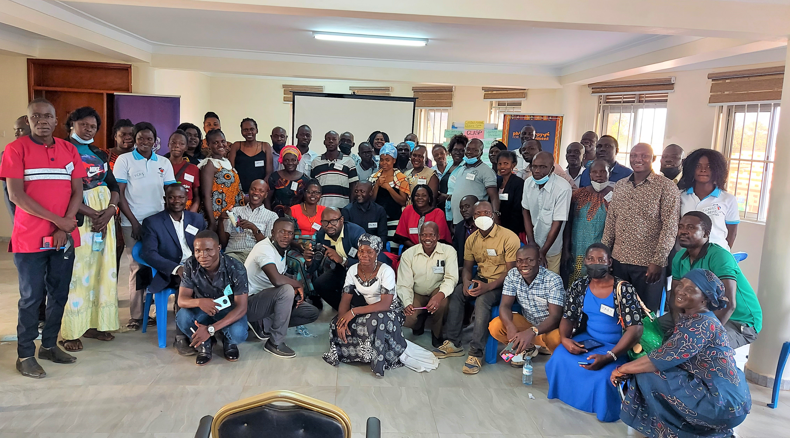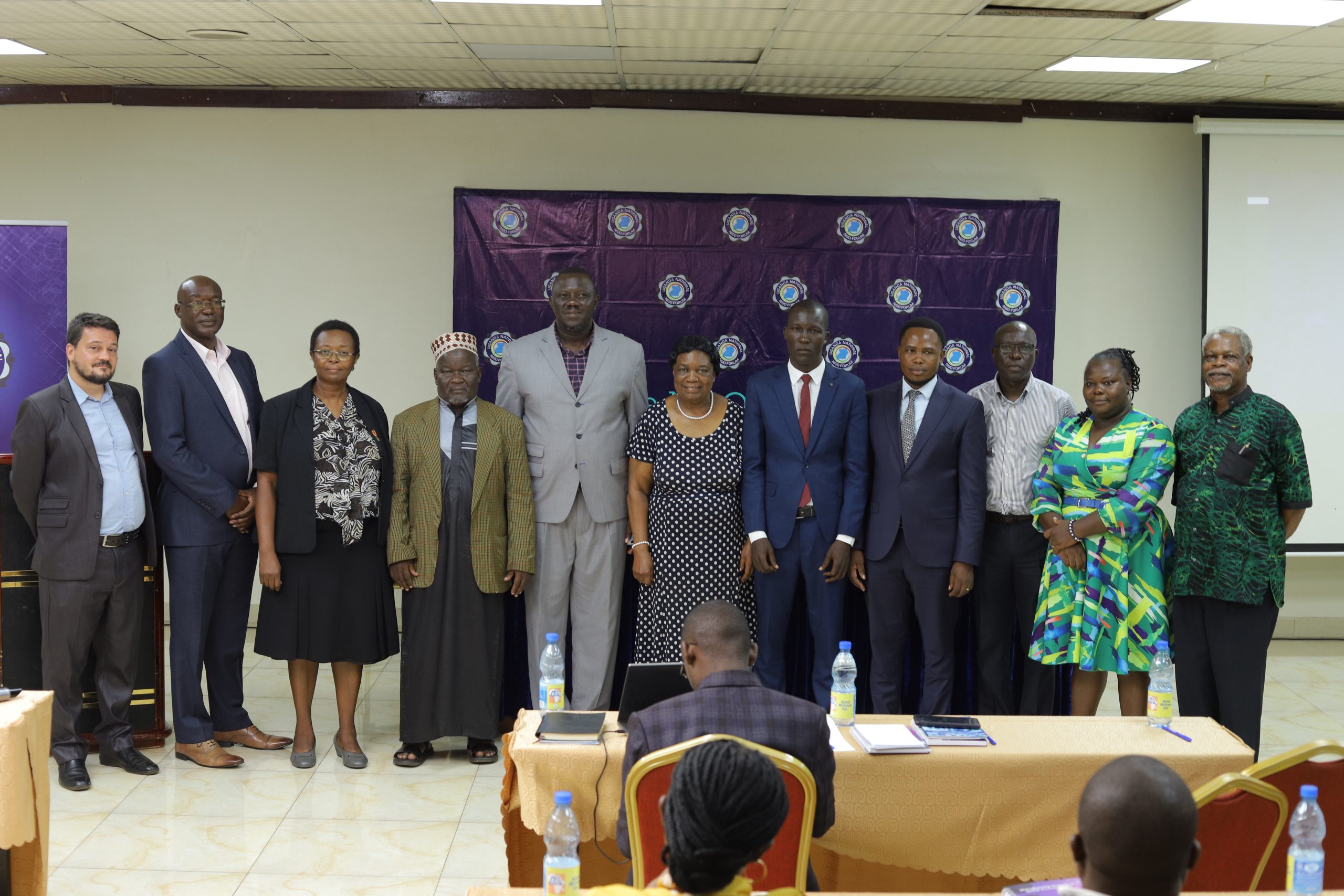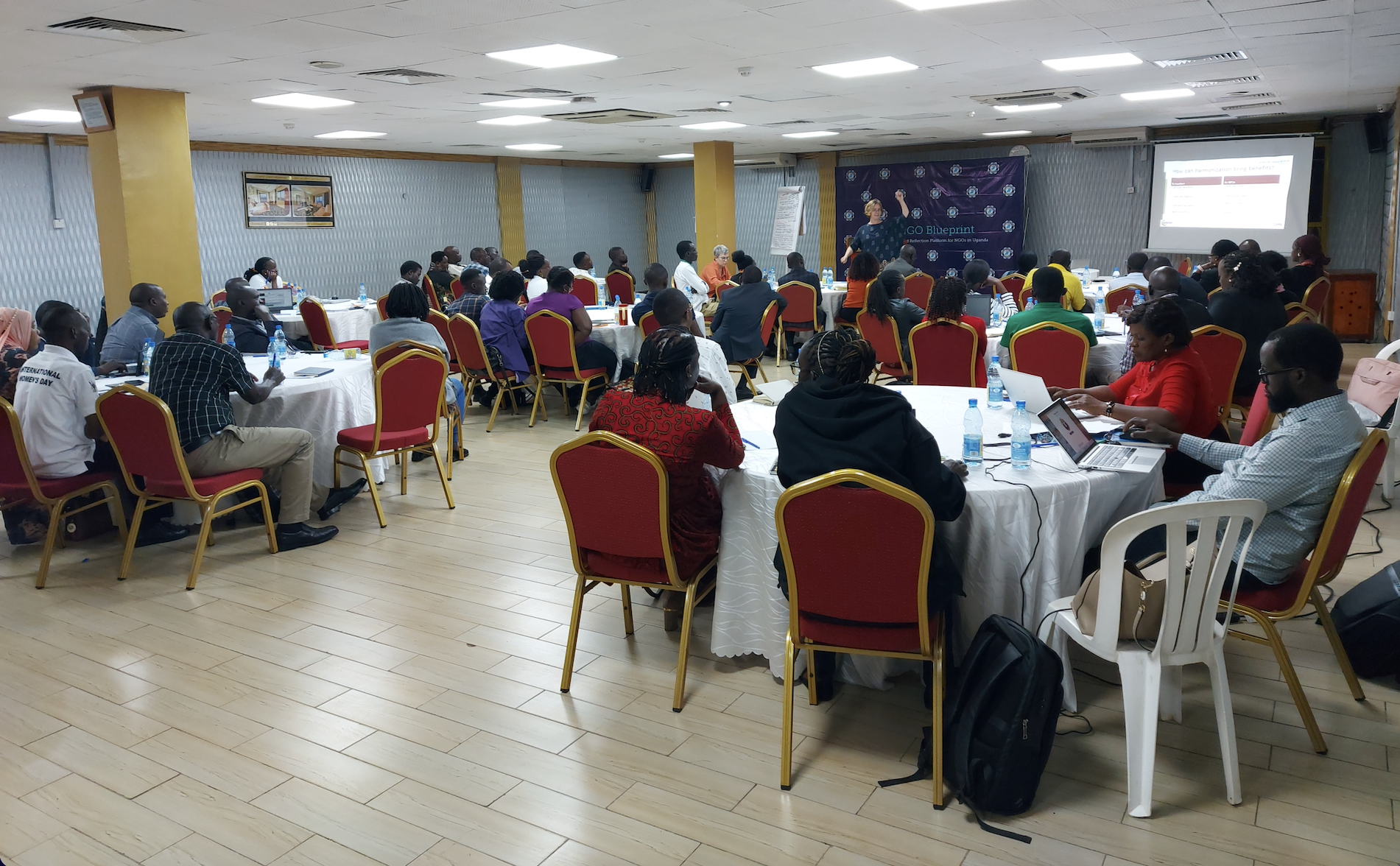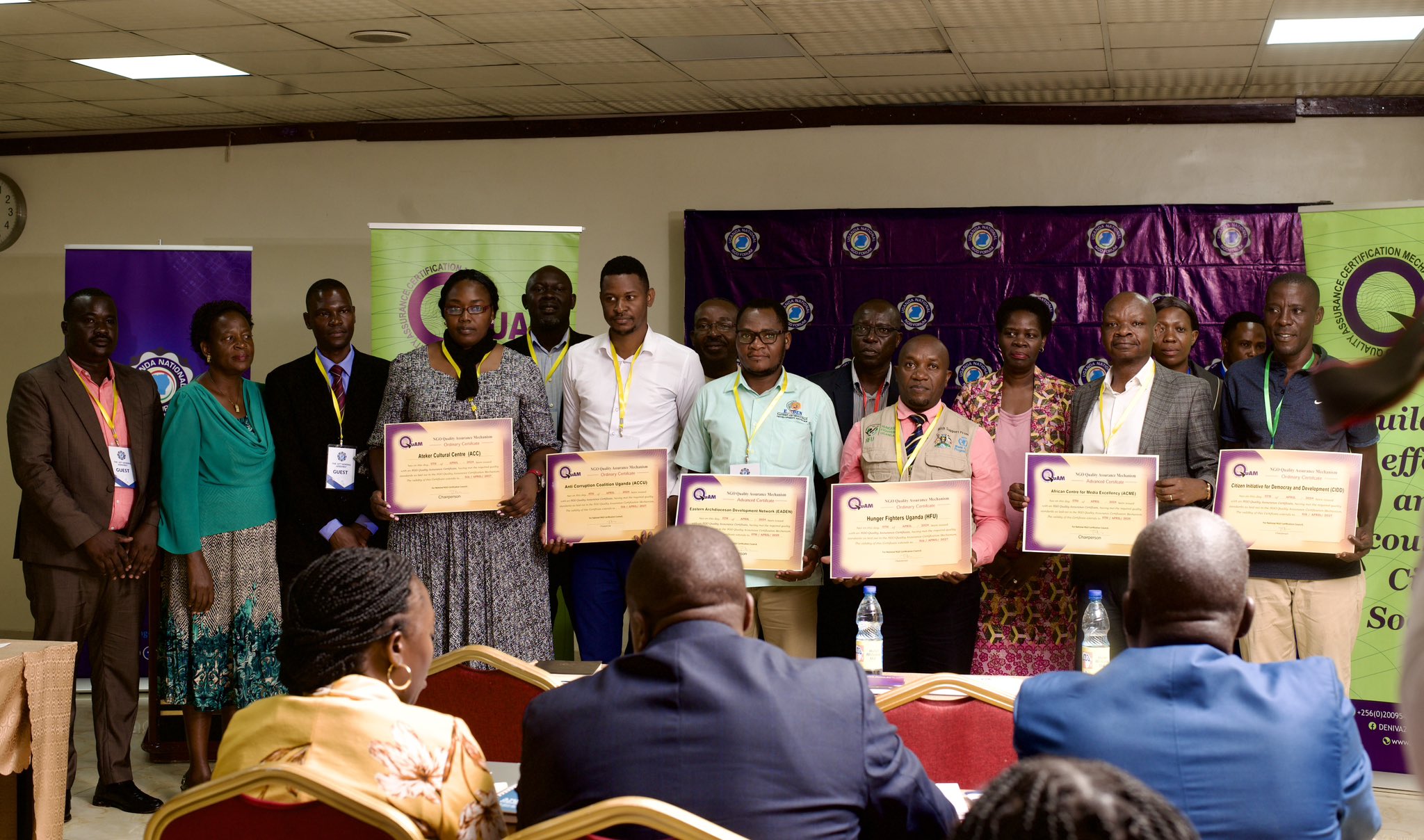
CSOs & CBOs Urged to Work with Duty-bearers for Community Transformation
To transform how development is done through the recognition of domestic resources, we need to strengthen the capacity of the players (civil society) that serve communities at the grassroots. After all, the only way CBOs can mobilize communities is by being credible, trustworthy and legitimate.
This was the main aim for the CBOs capacity-building trainings held in West Nile and Ankore regions to strengthen CSOs & CBOs’ engagement with duty-bearers and other stakeholders.
“One challenge we face as civil society is the failure to identify our members and clearly define who we are. this training will help us redefine our roles,” said Ronald Ofoyrwoth, Nebbi district NGO Forum.
The trainings held under our Civil Society Strengthening and Philanthropy for Development components in January and February brought together over 50 participants from CBOs and three local leaders (DCDO, ACAO-in charge of NGOs and LCV of Nebbi district) from the West Nile region, and 70 participants from Ankore and Tooro regions.
Some of the key issues discussed were the roles of Civil Society Organizations which were summarized as helping communities to identify their needs, resource mobilization and filling community gaps that government and families fail to solve. To solve these gaps, CSOs need to foster good relationships with these actors and create partnerships with the government.
The two key roles of CSOs identified were philanthropy and advocacy.
Participants were enlightened about citizen-based advocacy; a modern approach to advocacy that requires communities to present their issues and solutions. In this approach, Civil Society Organizations only come in to amplify their voices and support their interventions to fundraise and mobilize support from local leaders.
The participants were also fully equipped with skills on how to engage with the societies they serve while partnering with government officials as key stakeholders in community-led development. Emmanuel Urombi, LC V Chairperson-Nebbi, appreciated the training saying that he had been skilled on how to better lobby for votes during elections. He requested Uganda National NGO Forum to frequently organize such trainings for elected leaders to skill them on better service delivery.
The participants appreciated the timely and informative training and shared their views on citizen-led advocacy. Here is what some of them said;
For CSOs, the private sector and government to work amicably, the parties must be transparent & accountable, “CSOs should comply with existing laws,” said Isaac Mugisa of Humura Vulnerable Children, Ankore region.
“Government should also have a basket fund to support CSOs to implement their projects,” said Edith Buhazi of Educare Initiative, Ankore region.
“There is a need for CSOs to share work plans so that government and private sector identify areas of synergy,” said Elly Bamwine from Kazo Development Initiative.
CSOs should also pick a leaf from the private sector and set standards for performance as they try to bridge these gaps. In addition to this, “CSOs should ensure to advocate for responsibility amidst their advocacy for rights,” emphasised Annet Lekuru of Feminature Uganda (West Nile).
“This training will support CBOs to look for meaningful spaces for community engagement,” added Feni Twaib of West Nile Regional Civil Society Network.
According to Jackline Ewudopia of YUGNET, bottom-up approaches always create ownership.
Amule Mansuru of Raid Foundation Uganda (West Nile) said, “This new way of giving towards development is the best, I believe we have 70% potential to raise funds for our initiatives.”
These discussions on engagement yielded a mindset change for the CSOs in attendance on how to partner with various stakeholders. Simon Muhumuza from Green Environment Organization (Ankore) acknowledged that CSOs need to involve different stakeholders to solve community problems and push for partnerships even when there is resistance.
Above all CSOs should represent citizens’ values, ideas and interests to gain credibility and trust.



